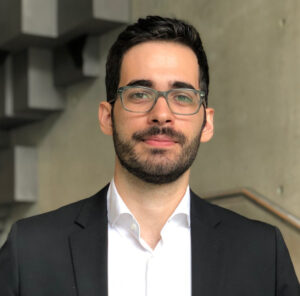SBME Synergy Research Day 2024
SBME Synergy Research Day is an opportunity for students in the Synergy Summer Undergraduate Studentship Program to showcase their summer research projects. We invite faculty, staff, students, researchers, and other BME enthusiasts to join us for a day of posters and research talks!
Events
Calendar

- This event has passed.
Special Seminar: Synthetic protein circuits for programmable smart therapeutics
March 12 @ 11:00 am - 12:00 pm PDT
Special Seminar: Synthetic protein circuits for programmable smart therapeutics
Join Virtually:
Seminar Abstract:
Tissue engineering has shown promising therapeutic potential; however, the immune system remains a key barrier that must be overcome for long-term cellular engraftment. Current strategies focused on local immune modulation often generate acute responses, largely due to their inability to dynamically respond, or finite reservoir of immune-modulating biologics. In comparison, the field of synthetic biology is uniquely suited to provide the means for probing and controlling such interactions using engineered cells with synthetic circuits that can respond to combinatorial environmental inputs, interrogate natural systems, and produce controlled therapeutic responses. An effective approach for programming cellular behavior involves the use of synthetic protein circuits, however, these circuits are limited to cytosolic proteins and achieving immune modulation requires the ability to control intercellular signalling.
To overcome these challenges, I developed a generalizable platform called RELEASE to enable synthetic protein circuits to control intercellular signaling. I then expanded the programming capabilities of RELEASE, while minimizing the overall genetic payload for engineering mammalian cells. In a separate project, I developed a high-throughput assay to determine key design principles of human transmembrane domains to guide the future engineering of synthetic protein tools and receptors. Through leveraging synthetic protein circuits, my vision is to engineer cells that interface with complex multicellular systems and identify essential signals to bias therapeutic responses, particularly in enhancing long-term cellular engraftment.

Dr. Alexander Vlahos’s Bio:
Alexander Vlahos is currently a Human Frontier Science Program Fellow in the laboratory of Dr. Xiaojing Gao at Stanford University. He applies principles in synthetic biology and protein engineering to develop tools for programming intercellular signalling in mammalian cells. Previously, he completed his PhD in Biomedical Engineering with Dr. Michael Sefton at the University of Toronto, where he developed biomaterial- and tissue engineering-based platforms to improve vascularization of the subcutaneous space for islet transplantation. His goal is to converge his background in synthetic biology, protein engineering, and tissue engineering to mechanistically study multicellular systems, such as the immune system with the goal of improving long-term cell engraftment.
Location:
DMCBH 101 LT